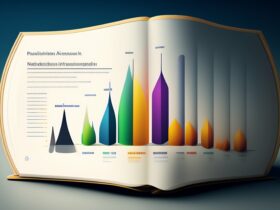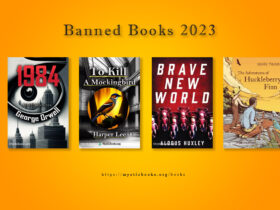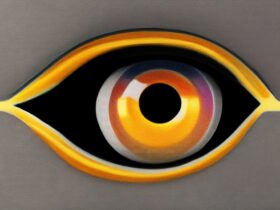In recent years, non-fiction books have gained a lot of popularity among readers. Rather than escaping into fiction stories, people are increasingly turning to self-help books, memoirs, and other non-fiction categories.
This trend has become especially evident in the last year, as the pandemic brought on a surge of interest in learning new skills and self-improvement. In this blog post, we will explore the reasons behind the rise of non-fiction books, the types of non-fiction books that are growing in popularity, and how you can benefit from incorporating them into your reading list.
Whether you are looking to develop new skills, advance your career, or simply gain new knowledge, non-fiction books can be an excellent resource for achieving your goals.
360.1 million nonfiction print books were sold in 2022. This was a 10.1% decrease over the 401.9 million reached in 2021 [Words Rated]. Yet the sales exceeded expectations. The sale of non-fiction books in 2022 was $14.02 billion, which is a 5.7% growth compared to $13.27 billion in 2021. The global non-fiction book market is projected to reach $16.61 billion by 2026.
Check our list of Top 10 Best Non-Fiction Books in 2022.
1. Why are non-fiction books gaining popularity?
Non-fiction books have been steadily gaining popularity in recent years. One of the main reasons for this is the rise of the self-improvement movement.
People are constantly looking for ways to improve themselves and their lives, and non-fiction books that offer practical advice in this regard have been a huge hit. Another reason for the popularity of non-fiction is the ease with which readers can access information.
The internet has made it easier than ever to learn about any topic under the sun, but with so much information out there, it can be hard to know where to start. Non-fiction books offer a curated selection of information on a particular topic, making it easier for readers to gain knowledge quickly and efficiently.
In addition, non-fiction books often offer insights and perspectives that readers may not have considered before. This can be especially appealing for those looking to broaden their horizons and learn about new ideas and topics. Finally, the rise of non-fiction can be attributed to the fact that people are simply looking for more meaning in their lives.
2. The types of non-fiction books that are growing in popularity
People are looking for self-improvement, learning, and growth. They want to expand their knowledge and improve their lives, and non-fiction books offer a wealth of information and insight.
There are several types of non-fiction books that are growing in popularity, including memoirs, self-help, and business books. Memoirs are often written by people who have experienced something extraordinary, and they offer readers a chance to learn from their experiences. Self-help books are designed to help readers improve their lives and reach their full potential. They cover topics like wellness, productivity, and personal growth.
Business books are growing in popularity as well, as more people look to start their own businesses or climb the corporate ladder. These books offer practical advice and strategies for success in the business world. Overall, non-fiction books are growing in popularity because they offer readers a chance to learn something new, gain insight into the world, and improve their lives.
3. The benefits of reading non-fiction books
There are many benefits to reading non-fiction books. First and foremost, they allow you to learn something new and expand your knowledge on a particular subject. Whether it’s a self-help book, a history book, or a memoir, non-fiction books are a great way to gain insights and information that you may not have known before.
They also allow you to explore new perspectives, challenge your assumptions, and broaden your worldview. In addition to the knowledge and insights that non-fiction books provide, they can also help improve your critical thinking skills. Non-fiction books require you to analyze and evaluate information, which can help you become more discerning and analytical in your thinking. Reading non-fiction books can also improve your memory and cognitive function, as your brain is constantly processing and retaining new information.
Finally, reading non-fiction books can be a great way to improve yourself and your life. Self-help books, in particular, can provide you with actionable tips and advice for personal growth, goal-setting, and achieving success. By applying these lessons to your own life, you can improve your relationships, career, and overall well-being.
4. How to incorporate non-fiction books into your reading list
The rise of non-fiction books has been a significant trend in recent years, and there are many good reasons to incorporate them into your reading list. Non-fiction books provide a wealth of knowledge and information that can help you learn new things and improve your life. If you’ve never read a non-fiction book before, it can be challenging to know where to start.
Here are a few tips to help you incorporate non-fiction books into your reading list:
1. Choose a topic that interests you.
There are many topics covered in non-fiction books, such as history, science, self-help, business, and more. Pick a topic that interests you and start there.
2. Start with shorter books.
If you’re not used to reading non-fiction, start with shorter books. This will help you get into the habit of reading non-fiction and give you a sense of accomplishment when you finish a book.
3. Look for books with good reviews.
When you’re searching for non-fiction books, look for books with good reviews. This will help you find books that are well-written, informative, and engaging.
4. Read with purpose.
When you’re reading non-fiction, it’s important to read with purpose. Take notes, highlight important points or quotes, and ask yourself questions. This will help you retain the information and get the most out of the book. Incorporating non-fiction books into your reading list can be an excellent way to learn new things, improve yourself, and broaden your horizons. With a little effort and the right mindset, you can make non-fiction a regular part of your reading routine.
Conclusion

In recent years, non-fiction books have experienced a surge in popularity due to several factors. The rise of the self-improvement movement has led people to seek practical advice and knowledge to enhance their lives. Non-fiction books offer curated information and insights, making it easier for readers to access valuable content amidst the overwhelming abundance of information on the internet.
Memoirs, self-help books, and business books are among the types of non-fiction literature that have gained significant popularity. Reading non-fiction books offers numerous benefits, including expanding knowledge, gaining new perspectives, improving critical thinking skills, and fostering personal growth. To incorporate non-fiction books into your reading list, choose topics of interest, start with shorter books, rely on good reviews, and read with purpose. By embracing non-fiction, readers can continually learn, grow, and enhance their lives.











Leave a Review